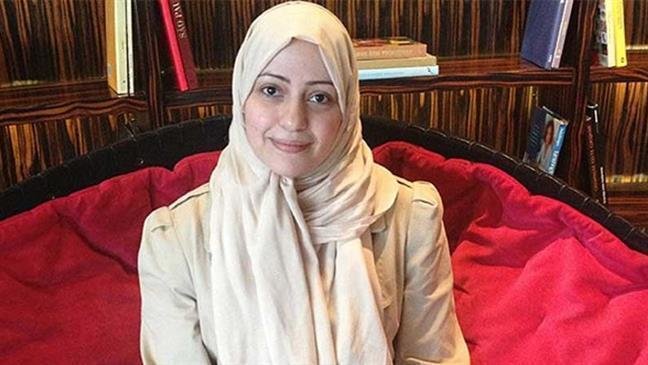Throughout October 2018, United Nations (UN) Special Procedures sent three separate joint communications to the Kingdom of Saudi Arabia expressing concerns over a myriad of human rights violations, ranging from the targeting of human rights defenders to extrajudicial executions for protest-related offenses committed by minors to arbitrary arrests and detentions. This blog series highlights these joint communications and the kingdom’s response, if it provided one.
Find our previous blog on the joint communication to Saudi Arabia on Jamal Khashoggi here.
On 10 October 2018, UN Special Procedures sent an Urgent Appeal (SAU 11/2018) to the Kingdom of Saudi Arabia from the Working Group on Arbitrary Detention; the Special Rapporteur on extrajudicial, summary or arbitrary executions; the Special Rapporteur on the promotion and protection of the right to freedom of opinion and expression; the Special Rapporteur on the rights to freedom of peaceful assembly and of association; the Special Rapporteur on the situation of human rights defenders; the Special Rapporteur on the independence of judges and lawyers; the Special Rapporteur on freedom of religion or belief; the Special Rapporteur on the promotion and protection of human rights and fundamental freedoms while countering terrorism; the Special Rapporteur on violence against women, its causes and consequences; and the Working Group on the issue of discrimination against women in law and in practice.
The mandates called attention to the widespread and systematic arrest and detention of women’s and human rights defenders in Saudi Arabia. The joint communications specifically highlighted the cases of six women’s and human rights defenders who have similarly expressed dissent or advocated for human rights in the kingdom, including that of Israa Al-Ghomgham, who has long advocated for the release of prisoners of conscience and for freedom of assembly and association in Saudi Arabia and is potentially facing a death sentence for her activism. The Urgent Appeal also noted the cases of Nouf Abdulaziz, a journalist and television producer; Mayya Al-Zahrani; and Samar Badawi, a renowned women’s rights activist who has called widely for women’s right to vote and to drive. Badawi has been the subject of two previous communications from Special Procedures, which regrettably have not produced adequate redress from the Saudi government. Also included in the joint communications were Nassima Al-Sadah, who has been notably active in advocating for the end of the male guardianship system and for the rights of the Shia minority in Saudi Arabia, and Hatoon Al-Fassi, who serves as an associate professor at King Saud University, a contributor to al-Riyadh newspaper, and a human rights defender who has long advocated for the right of women to participate in municipal elections and to drive.
Israa Al-Ghomgham, Samar Badawi, Mayya Al-Zahrani, and Hatoon al-Fassi have all been denied access to legal representation and communication with their families since their arrests. Hatoon Al-Fassi and Nassima Al-Sadah have also been subjected to a travel ban. Al-Sadah and Nouf Abdulaziz were additionally held incommunicado at an unknown location. With the exception of Israa Al-Ghomgham, who remains in Dammam’s al-Mabahith Prison, all of these women’s whereabouts are unknown. The communication noted that these cases and the respective continued detentions of these women all appear to be directly connected to their peaceful exercise of fundamental rights and their human rights work. Special Procedures also stressed that the exercise of the rights to freedom of expression and of peaceful association and assembly are not criminal offences, and as such should not invoke prosecution under Saudi counter-terrorism legislation. This legislation has been increasingly used in the kingdom as an excuse to silence the voices of peaceful human rights defenders and journalists.
The mandates cited several international human rights instruments and standards the Saudi government had violated in these cases, including the Universal Declaration of Human Rights.The Basic Principles on the Role of Lawyers, the United Nations Basic Principle and Guidelines, the UN Safeguards Protecting the Rights of those facing the Death Penalty, the General Assembly Resolution 68/181, and the UN Declaration on Human Rights Defenders were also called to attention as the mandates reiterated the standards of international law to which Saudi Arabia must adhere. As a member of the Human Rights Council, the Saudi government pledged to exhibit exemplary conduct in the protection of universal human rights, leading the independent experts to call on the kingdom to uphold its pledge and respond to the Urgent Appeal with initial steps taken to protect the six women in compliance with international human rights law.
The communication concluded with requests for comment and detailed information from the government on the legal basis for the arrests and detentions of Al-Ghomgham, Badawi, Al-Sadah, Abdulaziz, Al-Zahrani, and Al-Fassi, as well as their whereabouts and indications of any measures taken to ensure their safety and fair trials consistent with international human rights obligations. The Saudi government has responded to the communication, and translation of the response is ongoing, but cause for serious concern remains. The Saudi government has ignored numerous Urgent Appeals and refused to cooperate with UN Special Procedures and its mechanisms previously, instead continuing to commit abysmal human rights abuses. As Saudi Arabia continues to fail its duties as a member of the Human Rights Council, the safety of these women and the state of human rights defenders remain at serious risk.
Serena Dineshkumar is an Advocacy Intern with ADHRB





